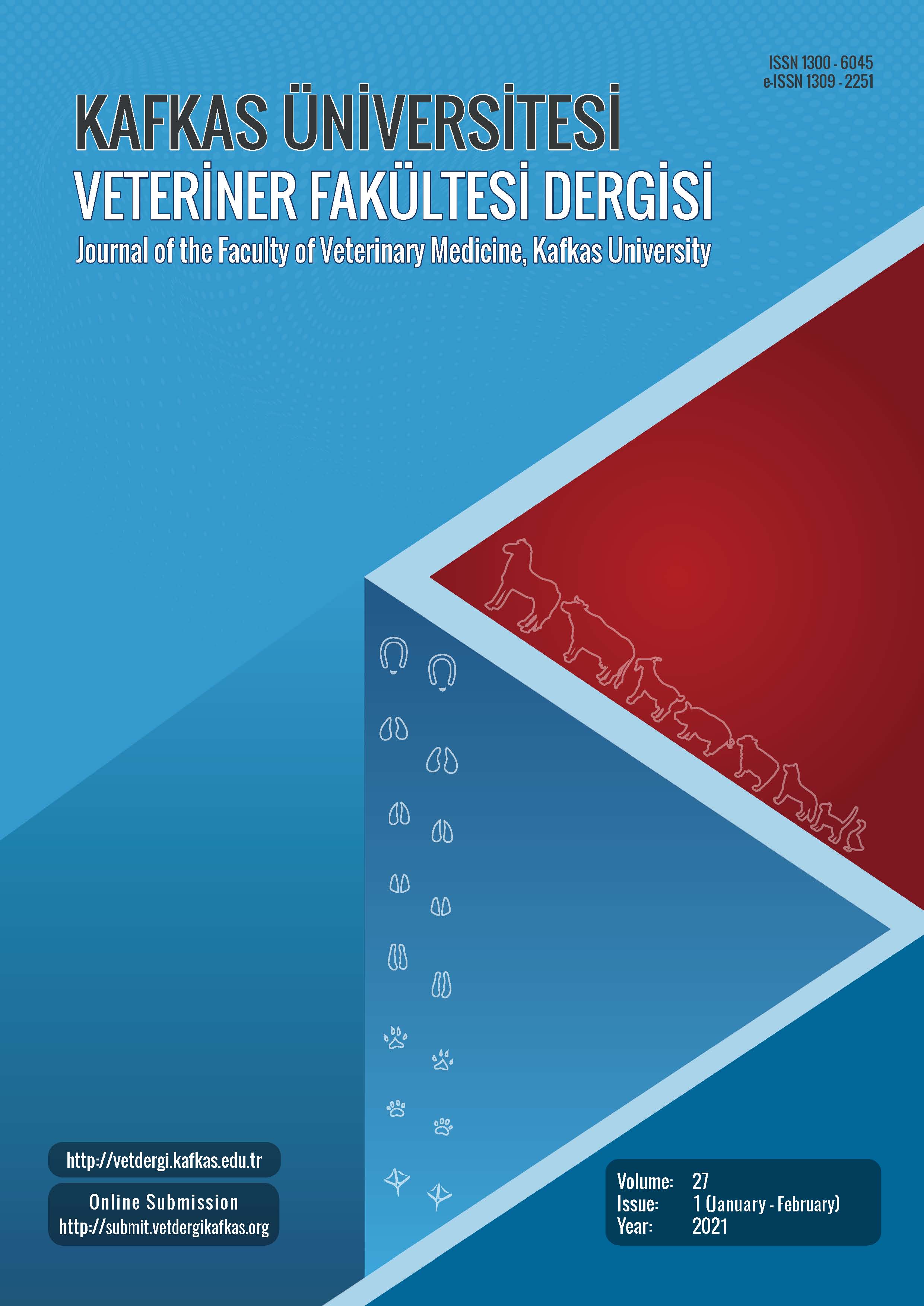
This journal is licensed under a Creative Commons Attribution-NonCommercial 4.0 International License
Kafkas Üniversitesi Veteriner Fakültesi Dergisi
2021 , Vol 27 , Issue 1
Effects of Probiotic (Lactobacillus farciminis) Supplementation in Quail (Coturnix coturnix japonica) Rations on Growth Performance, Blood Antioxidant Capacity and Cecal Some Short-Chain Fatty Acid Concentrations
1Kafkas University, Veterinary Faculty, Animal Nutrition and Nutritional Diseases Department, TR-36040 Kars - TURKEY2Ankara University, Veterinary Faculty, Animal Nutrition and Nutritional Diseases Department, TR-06110 Ankara - TURKEY
3Kafkas University, Veterinary Faculty, Department of Biochemistry, TR-36040 Kars - TURKEY DOI : 10.9775/kvfd.2020.24541 The purpose of this study was to investigate the effect of Lactobacillus farciminis supplementation in quail diets on performance, blood antioxidant capacity and the concentrations of cecal short-chain fatty acid (SCFA). A total of 180 day-old quail chicks were randomly divided into 3 groups each containing 60 chicks. Each group was randomly divided into 5 subgroups each containing 12 chicks. The chicks were fed with corn, soybean meal and full-fat soybean based rations for 35 days. While the control group was fed with basal ration, the experimental groups were fed with probiotic supplementation at 0.1 g/kg and 0.3 g/kg doses, respectively. At end of the experiment, the use probiotics in quails did not affect initial LW, final LW, LWG, FI and FCR. The increase in dietary probiotic, MDA, GSH, SOD, CAT and GPx exhibited a linear response. However, ceruloplasmin, albumin, total protein and globulin were not affected by the addition of probiotic. Significant linear responses in asetic acid, isocaproic acid and SCFA were observed with the gradued level of probiotic. However, a significant quadratic response in the caproic acid was observed. Therefore, the effective dose for caproic acid was 0.1 g/kg. There were no significant differences in acetic acid, propionic acid, butyric acid, isobutyric acid, valeric acid, isovaleric acid and BCFA concentrations for quails fed with different levels of probiotic. In conclusion, diets containing Lactobacillus farciminis in quail can be used to improve the antioxidant capacity and intestinal health. Keywords : Lactobacillus farciminis, Growth performance, Antioxidant capacity, Cecal short-chain fatty acid, Japanese quail











